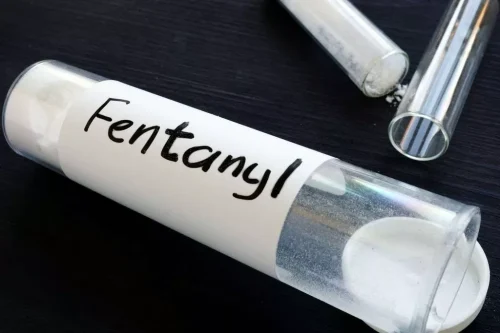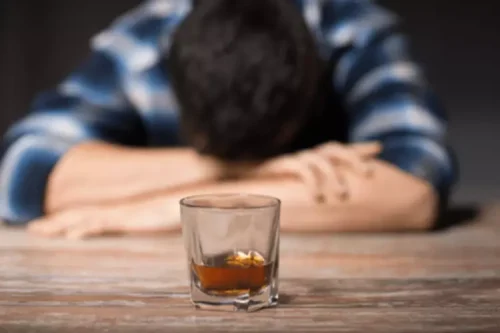What is alcohol intolerance, and what are its symptoms?

https://ecosoberhouse.com/ can cause immediate, unpleasant reactions after you drink alcohol. The most common signs and symptoms of alcohol intolerance are stuffy nose and skin flushing. Alcohol intolerance is caused by a genetic condition in which the body is unable to break down alcohol efficiently. The only way to prevent alcohol intolerance reactions is to avoid alcohol.
Can you suddenly develop an alcohol allergy?
Read beverage labels to see whether they contain ingredients or additives you know cause a reaction, such as sulfites or certain grains. Additionally, people may seek support from family and friends or advice from a medical professional if they require longer-term support. what causes alcohol intolerance occurs when the body does not have the correct enzymes to break down the toxins in alcohol.
Can you suddenly develop alcohol intolerance?
Also, if your symptoms seem to be linked to an allergy or a medication you’re taking, see your doctor. Common symptoms of alcohol intolerance include skin flushing, nasal congestion, and headaches. The only way to treat alcohol intolerance is to avoid alcohol or, at the very least, limit alcohol consumption. Sudden alcohol intolerance refers to when you have previously consumed alcohol without any issues but all of a sudden begin to experience adverse reactions after drinking. This can often seem to happen out of nowhere and can be quite alarming.

How is alcohol intolerance treated?
People who experience the alcohol flush reaction and who drink alcohol are at higher risk for cancer, including esophageal and breast cancer. The reason for this increased risk is that acetaldehyde is itself carcinogenic. Unfortunately, the only treatment for alcohol intolerance is avoiding alcohol. No drug will help you avoid the symptoms of alcohol intolerance or lessen your cancer risk. If you have a pattern of suddenly feeling very sick after consuming alcohol, you may have developed sudden onset alcohol intolerance. Your body may also start to reject alcohol later in life because as you age and your body changes, the way you respond to alcohol can also change.
Impact on your health
For a more severe reaction—severe skin reaction, weak pulse, vomiting, or trouble breathing—seek emergency help right away. In some cases, reactions can be triggered by an allergy to a grain such as corn, wheat, or rye or to another substance contained in alcoholic beverages. Reducing intake or stopping drinking may help a person feel more in control of their consumption and avoid experiencing a reaction or symptoms related to their alcohol use. A person’s tolerance may also change over time due to a decline in body mass in older adults. This may result in higher concentrations of alcohol in the blood and more significant effects from drinking. In some cases, reactions may also result from an allergy to a grain such as corn or wheat in alcoholic beverages.
- Seeking medical advice is crucial for accurate diagnosis and management.
- If they do not have an epinephrine injection to treat anaphylaxis right away, it could be fatal.
- It may be a good idea for those with a full alcohol intolerance to see a doctor to rule out any potential medical causes, and to undergo allergy testing.
If these drinkers stop or reduce their alcohol consumption, this tolerance could be lost. If you have an alcohol intolerance (or a lowered tolerance) but are struggling to give up alcohol, get in touch with Ria Health for further advice and guidance. Those with lower alcohol tolerances do not need to worry, but should still be aware of their limitations and drink appropriately if they choose to drink. It may be a good idea for those with a full alcohol intolerance to see a doctor to rule out any potential medical causes, and to undergo allergy testing. Genetic, psychological, social and environmental factors can impact how drinking alcohol affects your body and behavior.
This condition is usually genetic and is common in people of Asian descent. If a person develops a mild intolerance to alcohol or an ingredient in beverages, they may be able to manage it themselves simply by avoiding or limiting alcohol or certain drinks. Alcohol intolerance may cause a person to experience immediate reactions after they drink alcohol, or they may develop it hours after, the day after, or even later in life.
More on Allergies

But the good news is that understanding what might be behind these unexpected reactions can help you put them in perspective and take any appropriate actions. If you’ve recently found that alcohol isn’t agreeing with you the way it used to, it’s essential to listen to your body and consult with a healthcare professional. They can help rule out any serious underlying issues and guide you on the best way to manage your symptoms. If you suspect an allergy or food sensitivity is to blame, it’s worth getting tested or consulting with a healthcare provider to identify the specific cause.













